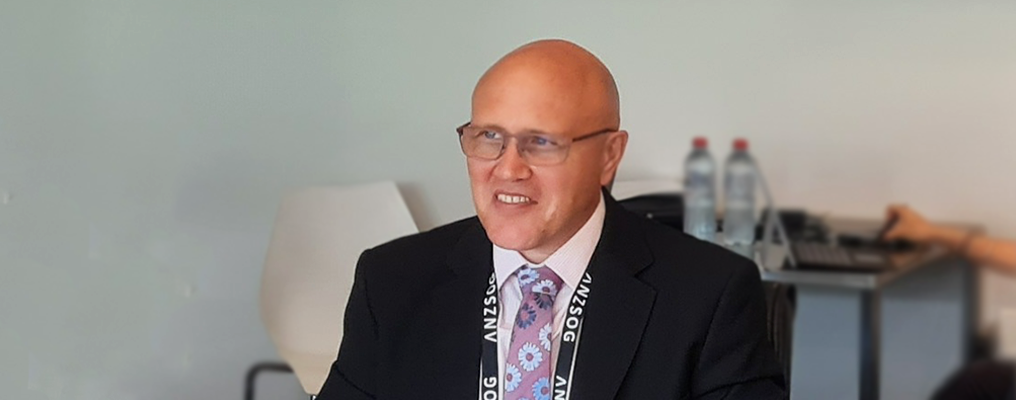ANZSOG’s Executive Fellows Program provides a deeper understanding of leadership
22 March 2023
● News and media
In a world of economic and political uncertainty, where the demands on them are increasing every year, it is increasingly important for public sector leaders to take time to reflect and invest in their own leadership.
ANZSOG’s Executive Fellows Program (EFP) is returning for 2025 and will be delivered in a face-to-face format with five-day intensives in Sydney and Brisbane, with a range of guest presenters supporting program director Robin Ryde.
The EFP gives senior public sector leaders a unique opportunity to develop a deeper understanding of leadership and learn alongside their peers from across Australia and Aotearoa New Zealand. EFP alumni include more than 200 public sector leaders who have gone on to hold roles as CEOs or Secretaries (equivalents) or Deputies after completing the program.
The 2025 program will be co-ordinated by Mr Ryde, a former CEO of the UK National School of Government, and focuses on three key leadership themes: Leading the Self and Others, Leading an Organisation and Systems Leadership.
The program will use contemporary issues as a focal point, and will also include three sub-themes:
- “The Invisible society”: How can government better support the most vulnerable, challenged and invisible communities within Brisbane?
- 2. International Volatility (from the global spectre of challenges to diplomatic tensions in the region)
- 3. First Nations Leadership (taking stock of public service engagement with indigenous perspectives and models of leadership)
Dana McDonald, a group manager at New Zealand Customs Service, was part of the ANZSOG EFP in 2021 and says that the program was tiring – but well worth it.
“We got stimulating presenters, a huge quantity of practical information, and the chance to build a network of people at a similar stage in our careers,” he said.
“There was a lot of content you could dig into for certain areas, and the online format gave you a chance digest the material before the next session, or even to implement it in your work.”
“You get exposed to a lot of tools, models, and ideas. You can simply give them a once-over lightly or get into the detail – depending on your needs at the time and as your needs change when you reflect back on the work.”
Mr McDonald said that before he undertook the EFP he had reached a point in his career where he felt he needed professional development to fill gaps in his skills.
“I’d moved into a different role as a Tier 3, where I report to a Deputy Chief Executive. It was a step up and I needed a leadership upgrade. I wanted to find out how I needed to be thinking, and what tools I needed to make that step up,” he said.
“I was looking at professional development options and based on all the options that were on the market and what I needed, I thought the EFP was ideally suited to me. I had previously completed the Towards Strategic Leadership program with ANZSOG and got a lot out of it.”
“I found Robin Ryde really good. One of the things he said that really resonated with me was, ‘your self is the instrument of your leadership’.”
“While other professions have tools they use to get the job done – such as a chef’s knife or a surgeon’s scalpel, as a leader it’s you that is the instrument. To be the best leader you can be, you need to focus on you. While that sounds simple, there is a lot to unpack and to include in your own leadership practice.”
Mr Ryde said that self-knowledge and self-mastery are the tools of good leadership.
“Leaders need to know what their self is capable of, what it does when it is under pressure, what are its blind spots, what depletes and what restores its energy. For example, if you understand you are the kind of leader who instinctively leaps in to solve problems, you may want to think about waiting,” he said.
“It is also important to understand what it is that you uniquely bring to leadership and remember that the things leaders do cast a long shadow.”
The EFP program focuses on modes of leadership that move away from ‘command and control’ and emphasise leadership that is done with ,and through, others and skills that bring out cooperation and collaboration.
The program encourages participants to share their personal leadership experiences in a creative and collaborative environment, and gives them tools and ideas to apply when they return to work, as well as opportunities for self-reflection.
Participants learn from a cast of renowned academics and senior public sector practitioners from Australia, Aotearoa New Zealand and around the world, in a program designed to build a greater understanding of themselves and the environment they work in, and to help them take the next step in their career.
Mr McDonald said that doing the EFP had given him more confidence, as well as some tools and language that he can use in his role.
“I also feel I’ve got permission to articulate some of the leadership skills to my own leadership team, and share those ideas with them because it’s tested stuff that works in the real world.”
Applications for the 2025 Executive Fellows Program are now open. For more information about the program, click here or email programs_team@anzsog.edu.au.
The EFP will commence with an online orientation session on 7 July 2025 (3 hours), followed by two intensive in-person five-day modules held in Sydney (14-18 July) and Brisbane (21-25 July)
